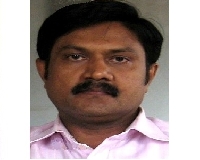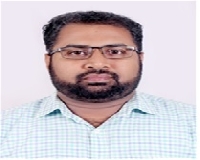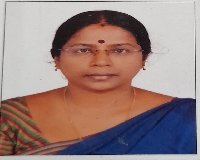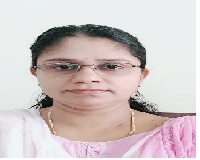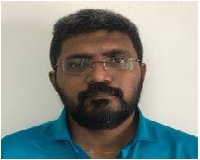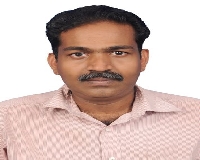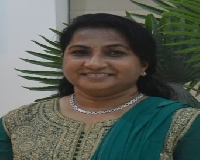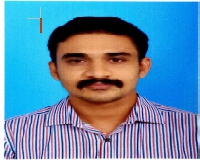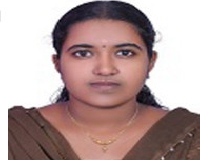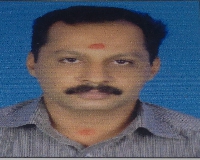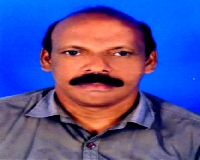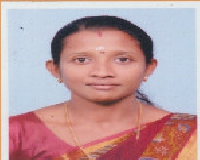Department of Electronics and Communication
The Department of Electronics and Communication was established in the year 2000 and is housed in an independent two storeyed building in the campus. The department aims to inculcate academic knowledge and laboratory exposure to foster proficient electronic-communication engineers. It offers the best opportunity for budding professionals to learn and come out with all the skills required to perform well in today's competitive world.It offers 4 year B.Tech. degree in Electronics and Communication Engineering and 2 year M.Tech degree in Signal Processing.
The department has well experienced faculty members with post graduate and doctoral qualifications from prestigious institutions with many national and international publications. We concentrate on a well organised and updated delivery of the courses to students. The department laboratories have the state of art equipments and high-quality lab practices with experienced supporting staff who encourages students to pursue self-developed and innovative project works. Spacious class rooms, seminar hall, waiting rooms for boys & girls, and plenty of other amenities are the main attributes of our department. The department has very efficient advisory system which ensures effective student-teacher-parent relationship.
Based on the industry/profession requirements, the department regularly organizes workshops and seminars to train faculty and students on emerging areas in the field of Electronics. The Electronics Association is very active in organizing and conducting technical festivals and project exhibitions. Students are encouraged to organize/participate in intercollegiate technical /cultural competitions organized by other institutions also.Apart from faculty development programmes, TEQIP fund of the institution supports Equity Assurance Programme (EAP), which includes remedial classes and scholarships for the students. Industry-Institute Interaction Cell (IIC) of TEQIP scheme regularly conducts workshops & talks by industry experts.
The department is approved as a research centre under KTU. The research activities isin the field of Medical Image processing, Machine Learning and Deep Learning which helps the students to imbibe desire for life-long learning. Over the years, the department has produced many proficient alumni holding positions of eminence in public and private sector institutions.
VISION
Transform individuals into professionally excellent and socially responsible Electronics Engineers through value based education
MISSION
• Offer quality undergraduate, graduate & research oriented programs in Electronics and Communication Engineering.
• Provide modern facilities in a productive environment to students and faculty for continuous improvement.
• Encourage faculty and students to carry out innovative research.
• Motivate the students for creative interaction with industry and for the active involvement in co-curricular and extracurricular activities.
• Inculcate ethics and social values in students to transform them into responsible citizen
Programme Educational Objectives
Our graduates will be
PEO1: Able to inculcate appropriate skills and knowledge to meet the demands and challenges of industry and to achieve professional excellence.
PEO2: Able to acquire knowledge for analysis of real life problems, to formulate appropriate solutions that are technically sound, economically feasible and socially acceptable.
PEO3: Able to apply concepts of mathematics and theoretical knowledge to identify, analyse and solve problems to pursue higher education or research.
PEO4: Able to work in teams and to develop leadership quality.
Programme Outcomes
Our graduates shall be able to
1. Engineering knowledge: Apply the knowledge of mathematics, science,engineering fundamentals, and an engineering specialization to the solution of complex engineering problems.
2. Problem analysis: Identify, formulate, review research literature, and analyse complex engineering problems reaching substantiated conclusions using first principles of mathematics, natural sciences, and engineering sciences.
3. Design/development of solutions: Design solutions for complex engineering problems and design system components or processes that meet the specified needs with appropriate consideration for the public health and safety, and the cultural, societal, and environmental considerations.
4. Conduct investigations of complex problems: Use research-based knowledge and research methods including design of experiments, analysis and interpretation of data, and synthesis of the information to provide valid conclusions.
5. Modern tool usage: Create, select, and apply appropriate techniques, resources, and modern engineering and IT tools including prediction and modelling to complex engineering activities with an understanding of the limitations
6. The engineer and society: Apply reasoning informed by the contextual knowledge to assess societal, health, safety, legal and cultural issues and the consequent responsibilities relevant to the professional engineering practice.
7. Environment and sustainability: Understand the impact of the professional engineering solutions in societal and environmental contexts, and demonstrate the knowledge of, and need for sustainable development.
8. Ethics: Apply ethical principles and commit to professional ethics and responsibilities and norms of the engineering practice.
9. Individual and team work: Function effectively as an individual, and as a member or leader in diverse teams, and in multidisciplinary settings.
10. Communication: Communicate effectively on complex engineering activities with the engineering community and with society at large, such as, being able to comprehend and write effective reports and design documentation, make effective presentations, and give and receive clear instructions
11. Project management and finance: Demonstrate knowledge and understanding of the engineering and management principles and apply these to one’s own work, as a member and leader in a team, to manage projects and in multidisciplinary environments.
12. Life-long learning: Recognize the need for, and have the preparation and ability to engage in independent and life-long learning in the broadest context of technological change
Program Specific Outcomes
At the end of the programme, the graduate
PSO1 : Should be able to apply fundamentals of electronics in various domainsof analogue and digital systems
PSO2 : Should have the capability to design and analyse various functional elements of different modes of communication systems and signal Processing
PSO3 : Should be able to apply the contextual knowledge of Electronics and Communication Engineering to assess societal, environmental, health, safety, legal and cultural issues with professional ethics and function effectively as an individual or a leader in a team to manage different projects in multidisciplinary environments as the process of life-long learning.










